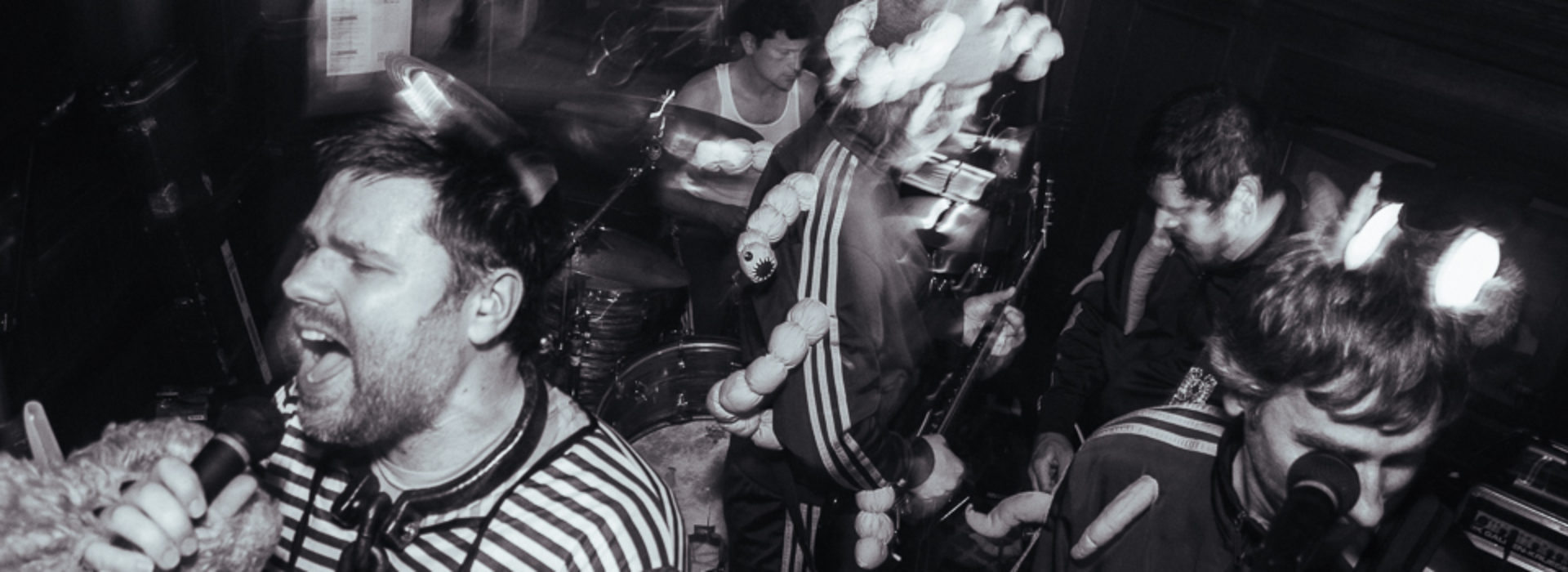This past week, I've been listening to The Darkest of the Hillside Thickets' newest album, "The Shadow Out of Tim" (no, not a spelling error). This jaunty CD from a Lovecraftian band loosely follows the themes of HPL's "The Shadow Out of Time," mixing in a few of his other creations like Nyarlathotep for good measure. Generally, explicitly Lovecraftian music is quite rare, and the Thickets take this a step further by cultivating a unique style detached from the expected dark, ambient, eerie hymnals. In fact, clarifying said style is no easy task, though they might best be called punk rock with a very specific focus on musically rendering the best of HP Lovecraft.
Pleasantly, at least to this listener, the Thickets also seem to exhibit a fair amount of influence from classic rock. Undoubtedly, they are under the tow of the first Lovecraftian band to originate in the murky psychedelic era of the late 1960s and early 1970s, the group which called itself HP Lovecraft. However, it must be said this predecessor actually produced only a few songs specifically based on the written work of the Old Gent from Providence. Fortunately, the Hillside Thickets greatly outdo the earlier band in this regard, even if they bear a faint stamp of their style. The Canadian musicians released this latest album on June 21st, 2007, and it bears a distinct, yet improved resemblance to earlier releases like "Let Sleeping Gods Lie" and "The Great Old Ones."
One of the Thickets' greatest skills is arguably the swift incorporation of catchy background melodies and experimental sounds into a greater set of lyrics, which follows the story in each song (and, in this case, across the whole CD). On "The Shadow Out of Tim," this is most evident in the tracks "Blackout," "Return to Melanesia," "Cultists on Board," "and "Ride the Flying Polyp." Yet, in a few instances, some might find the same shrieking harmonics, whistles, and experimental grindings in these pieces a bit overwhelming, whereas others will lap them up excitedly.
Even through an artsy cacophony punctuating some of the songs, the listener will find the adept storytelling skills of the Thickets at work. The changes in rhythm and pitch are usually spot on with the lyrics, effectively conveying appropriate shifts in mood, imagery, and the course of the story. As anyone familiar with HPL will know, this tale involves the Great Race of Yith reaching [forward] through time to temporarily exchange minds with the hapless narrator. While the Thickets retelling veers somewhat from the original text, it still captures the essential themes of cosmic awe and overwhelming fright Lovecraft himself sought to present in the story. This is, perhaps, best summarized in the track "Some Things Man was Not Meant to Know." This, above all else, is the greatest merit of the Thickets here. After playing through the fifteen tracks on the CD, one feels as though the roller coaster ride has come full circle, and the price of admission satisfied.
As alluded to above, this is not for everyone. Some darker souls will lament the lack of a traditional Gothic slow, ambient style. Others unappreciative of punk or classic rock may similarly find themselves dissatisfied. Still, beyond personal musical preferences, for the Lovecraftian admirer there is almost certain to be a treasure trove of interesting gems lurking in this album. It is, with few exceptions, worthy of placement in the halls of both cosmic horror and tasteful music.
